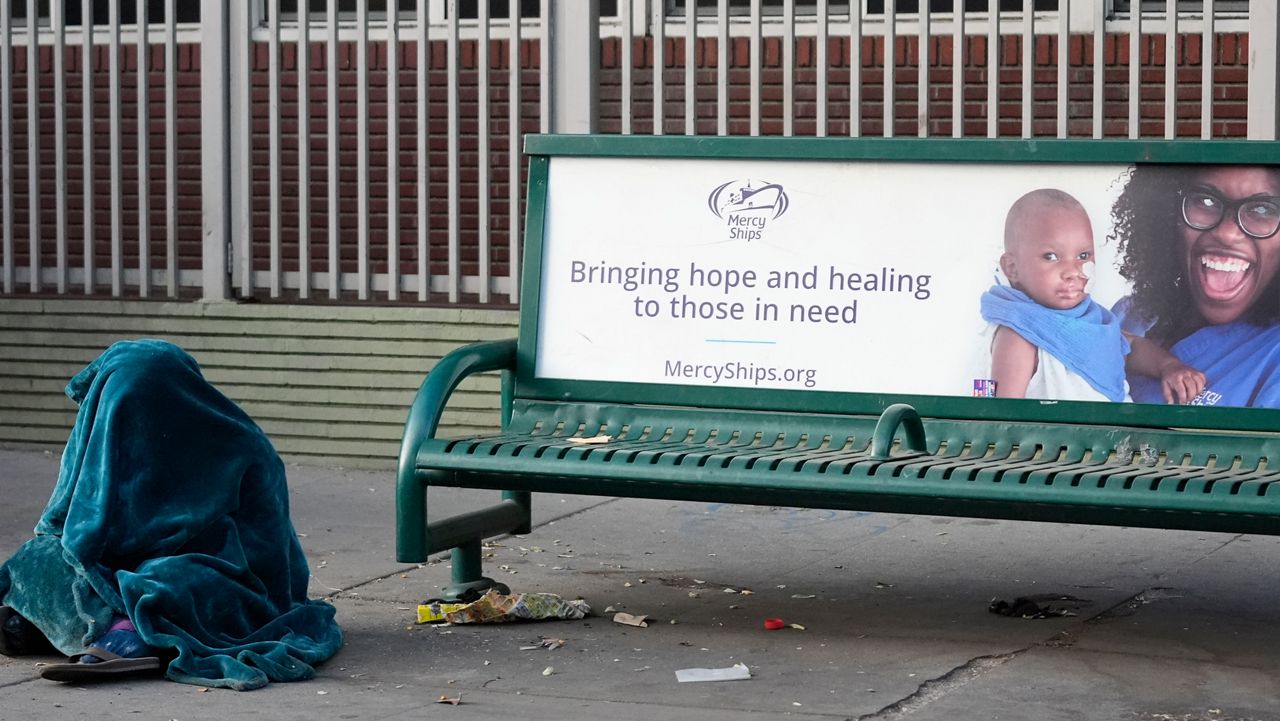“This was a state-of-the-art hospital,” Todd Bernhardt said as he looked at pictures of devastation during his last trip to Ukraine.
He’s the Senior Director of Global Communications at International Medical Corps, whose headquarters are in a high rise near Brentwood.
“We have gone in and rebuilt health care facilities that were destroyed. We are making sure in areas that are still under attack that they have the medical supplies that they need,” Bernhardt said.
That becomes even more challenging as Ukraine prepares for a war-torn winter. International Medical Corps is a global first responder that treats disasters, conflicts and diseases. The nonprofit has a team of 300 people on the ground in Ukraine, 10 times more than the 30 they had when the invasion began in February. But as waves of rockets rain down, Bernhardt says they have to get creative to stay safe.
“In Odessa, we work with a maternity hospital and have created a fully functional neonatal intensive care unit in their basement so that theses very vulnerable human beings in the first hours and days of their lives are not under threat from potential attack,” Bernhardt said.
“We are here. We are at the frontline,” said Dr. John Roberts, who goes by J.R. He was brought on to help the organization design its emergency medical team, a mobile field hospital that can be deployed anywhere in the world within 72 hours. Roberts says the vast majority of patients they are treating do not have gunshot wounds or injuries related to missile attacks.
“Just because there’s a war going on doesn’t mean that people stop having babies. It doesn’t mean that people stop having high blood pressure, or diabetes, or HIV, or COVID even,” Roberts said.
The teams also focus on mental health services and access to clean water, a necessity for treating disease. Russia’s latest attack on Odessa this week knocked out its water system for several hours.
“Hospitals are getting destroyed. Day care centers are getting destroyed. Sewage plants are getting destroyed. All of a sudden, if you can’t separate clean from dirty water, then you’re dealing with a whole other hose of issues,” Roberts said.
Still, International Medical Corps medical says it’s mission isn’t to just create temporary fixes but to provide actual medical training to Ukrainian doctors, nurses and hospital staff, through a partnership with Harvard Humanitarian Initiative.
“A family medicine doctor could treat a gunshot wound or a trauma nurse knew how to handle 100 new casualties all at once,” Roberts said. “Ukraine has a lot of really talented doctors and nurses and paramedics, but they didn’t know how to do trauma and they didn’t know much about chemical weapons or mass casualty.”
So far, the program has trained over 2500 people and with winter fast approaching, Bernhardt and Roberts are still committed to the Ukrainian people — knowing the need for vital resources and medical care remains as important as ever.











